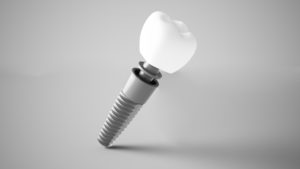 Dental implants can be an excellent option for missing teeth. Not only do they look natural and allow you to continue eating all your favorite foods, but they can also help keep the jawbone strong. Unfortunately, no dental treatment is foolproof; problems can always arise, and implants are no exception. Here’s what you need to know about dental implants in North Dallas that come loose – the causes, the signs, and what to do if it happens.
Dental implants can be an excellent option for missing teeth. Not only do they look natural and allow you to continue eating all your favorite foods, but they can also help keep the jawbone strong. Unfortunately, no dental treatment is foolproof; problems can always arise, and implants are no exception. Here’s what you need to know about dental implants in North Dallas that come loose – the causes, the signs, and what to do if it happens.
What Can Cause an Implant to Feel Loose?
There are multiple reasons that an implant might feel loose, and some are more serious than others. For example, it could simply be the crown that’s come loose rather than the implant itself; this can easily be solved by having the crown tightened or replaced. On the other hand, if the actual implant (the part inserted into the jaw) is moving, it might be a sign of bone loss, which means that the implant has failed to integrate with the bone.
Another possibility is peri-implantitis, a type of gum disease that affects the tissues around an implant. It can be treated if caught early, but if it has progressed too much, the implant will have to be removed.
How Can I Tell if My Implant is Loose?
It goes without saying that an implant that is moving around or has fallen out of your mouth is loose. Other indicators include discoloration around the implant area, easily bleeding, pain or discomfort, and visible bone loss
Note that a loose crown will often have similar symptoms to a loose implant; in either case, you’ll need to make an appointment with your dentist in North Dallas as soon as possible. If you leave a loose implant alone for too long, it may develop an infection that could spread and cause all sorts of damage.
How is a Loose Implant Treated?
Your dentist will try to save a loose implant if they can. To identify the problem, they’ll take the crown off and clean the area before checking to see what the appropriate response is. Sometimes, it can be as simple as tightening the parts, but other times the implant will need to be switched out or removed altogether.
A successful dental implant can be life-changing, but don’t ignore potential problems; a swift response may be key to saving the implant and protecting your health. Follow your dentist’s instructions for taking care of your implant, and be sure to tell them about any concerns you may have. Always make the effort to try and protect your new smile.
About the Author
Dr. Dale W. Greer has practiced dentistry since his graduation in 1977; he was voted by his peers to be named one of the “Best Dentists in Dallas” in D Magazine. He provides dental implants and other cosmetic and restorative options for patients with missing or damaged teeth. To schedule an appointment at his practice, visit his website or call (972) 233-4546.


